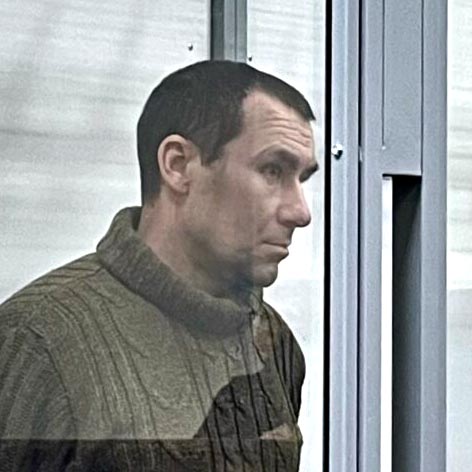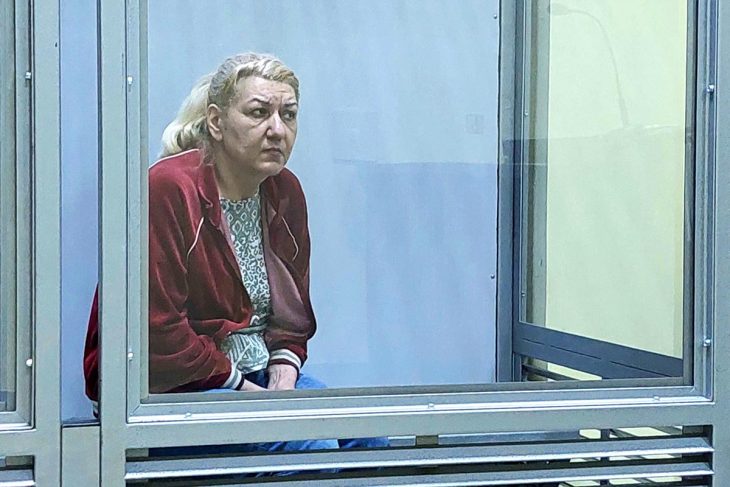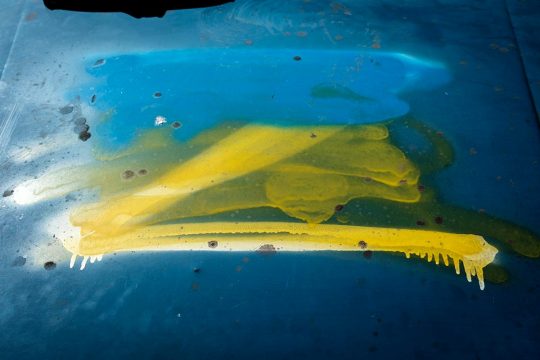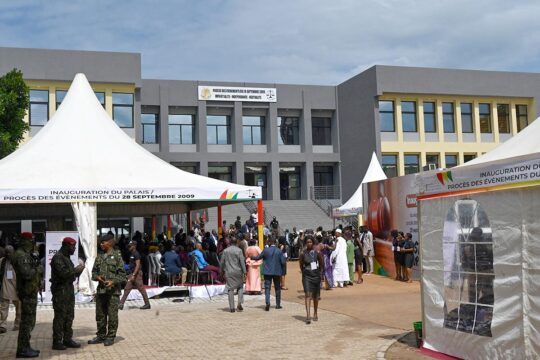Tatiana Nezelenikova, 58, was accused of treason because of her work in the occupation government in Crimea. In this position, she introduced restrictions on Ukrainian business in the occupied territory. This was the general direction of Russian policy, and the court assessed that Nezlennikova was one of those who implemented it.
In his conclusions, prosecutor Oleg Telefanko requested 15 years of imprisonment with the seizure of her property. However, on November 1st, judge Natalia Zubachyk granted a 12-year term, a minimum sentence for the crime of high treason under Ukraine’s criminal code.
At the last hearing, the defendant cried:
- “I ask the court not to apply such a cruel punishment to me.”
- “And what to apply?” the judge answered in surprise.
- “I ask you to take into account my age and everything. I believe that there is an opportunity to somehow revise something and apply some mitigation.”
- “I do not fully understand. What are you asking the court for?”
- “Not to punish me so severely.”
- “And how?”
- “To consider the possibility of mitigation. I currently do not understand why I am being punished so severely. I do not understand it.”
Nezelenikova admits no guilt. “I did not carry out any subversive activities, nothing like that,” the defendant told the court. “I just worked to earn a living, to be able to help my retired parents. They needed constant treatment. Last year, both my mother and father were ill. My work was not aimed at carrying out any subversive activities, because it was not related to that. I did not harm the economy of Ukraine.”
Nezelenikova was detained in Lviv in April this year. Before Russia’s full-scale invasion of Ukraine, she came to her hometown of Kamianske, Dnipropetrovsk region, when her father died. After February 24, Nezelenikova could not return to occupied Crimea from Ukraine and tried to find a solution - to flee to Poland from Lviv region, then go to Belarus and Russia. But before she could cross the border, she was detained at Ukrainian customs.
"During the customs inspection I had a passport of a Russian citizen," she confirmed in court.
"The only place to earn money"
Nezelenikova has lived in Crimea since 1987, long before the annexation, in the capital Simferopol. At first she worked in a design institute as an engineer. Later she worked as a deputy head of the Department of Trade and Consumer Services of the Ministry of Economy.
When the Russian authorities took power in 2014, Nezelenikova took the post of deputy head of the "Ministry of Industrial Policy of the Republic of Crimea". In the same year, Nezelenikova successfully completed a course at the Russian Presidential Academy of National Economy and Public Administration.
In 2020, she received a medal “for valiant labour” from the occupation authorities "for many years of conscientious work, high professionalism and in connection with the Trade Workers Day”. The accused worked in the "ministry" until April 2021, and then retired.
As can be seen from the case materials, Nezelenikova was a member of several established commissions under the "Council of Ministers of the Republic of Crimea". In Nezelenikova's phone, investigators found a photocopy of a letter on the order of the President of the Russian Federation regarding implementation of the "Russian fairs" project, which relates to the revival of fair trade. At the same time, other documents were mentioning a ban on the import of Ukrainian goods. As investigators found out, Nezelenikova prepared documents to institute the supply of products from the Russian Federation to annexed Crimea.
“I have the right not to testify against myself”
In previous court hearings Nezelenikova repeatedly tried to explain her position to the court, then during her own interrogation she was not very vocal. She exercised the right not to testify against herself and refused to answer the prosecutor's clarifying questions.
- “What position did you hold before Crimea was annexed?” the prosecutor asked.
- “Do I have the right not to answer this question?” Nezelenikova replied.
- “Do you think it is right that Crimea was annexed by Russia?” the prosecutor asked again.
- “This is not relevant to the case,” said her lawyer, asking the court to remove the question.
During the period from 2017 to 2022, Nezelenikova crossed the border of Ukraine through the temporarily uncontrolled territory 12 times - seven times through the checkpoint in Chongar, and 5 times in Kalanchak in Kherson region. She used a Ukrainian passport to enter, although she also obtained Russian citizenship.
- “For what purpose did you receive a Russian passport and when was it?" the prosecutor asked.
- “I received it in 2014, on April 10, because I lived and worked there, I had a job and a place to live. In Ukraine, I had no job and no place to live,” Nezelenikova replied.
- "Where did you work when you received a Russian passport?"
- “It was the Ministry of Economy.”
- “Was it a body of the Russian Federation or of the Ukrainian side?”
- “I find it difficult to answer this question.”
- “What do you mean? Why?" the judge asked in surprise.
- “Because I can't remember now how all these events went.”
- “Tatiana Vasilyevna, did you work in the "Ministry of Industrial Policy of the Republic of Crimea?”
- “Yes, I did.”
- “In what position did you work?”
- “I don't remember now, because there were many reorganizations.”
- “Tell me the positions that you remember.”
- “I have the right not to testify against myself.”
“Please tell me, during your work after the occupation of Crimea by the Russian Federation, did you receive any letters, instructions, directives from the Russian Federation bodies, which you fulfilled or were involved in?" the prosecutor insisted.
“I have the right not to testify against myself”, she replied.
Her lawyer asked Nezelenikova to justify herself, in vain. "Since April 10, 20214, Nezelenikova has been a citizen of the Russian Federation with all rights and obligations, so she cannot be the subject of a crime under the Criminal Code of Ukraine," he pleaded. The law provides that one of the grounds for loss of Ukrainian citizenship is voluntary acquisition of citizenship of another state. However, Nezelenikova did not apply for renunciation of Ukrainian citizenship. She and other defector officials in occupied Crimea were once recognized as Russian citizens. But such automatic acquisition is not recognized by Ukraine.
"I worked because I had to live somehow and do something. Should I quit and sit idle? I worked all my life, to be accused of high treason?" protested Nezelenikova.
HIGH TREASON IN KYIV REGION: 15 YEARS FOR A GUILTY PLEA
By Irina Salhii, our correspondent in Kyiv (Sudovyi Reporter)

Taras Tyshchenko was given a 15-year prison sentence by a Kiev district court for showing Russians the residence of members of the Ukrainian territorial defence. © Iryna Salii
On November 3, in another high treason case that was held in Kyiv in the Solomyansky District Court, Taras Tyshchenko, a 42-year-old resident of the village of Peremoha, east of the capital city, was sentenced to 15 years in prison. All his property, except for housing, will be confiscated. Tyshchenko recognized that during the occupation, he showed to Russians the residence of members of the territorial defence, among whom luckily no one was killed. "I believe that he is sincerely repentant. He admits guilt. Just because of stress, perhaps that was why he was exposed to such a complex type of responsibility," his lawyer said. The prosecutor and the defender were united in their position on 15 years of imprisonment.
This report is part of a series on war crimes, produced in partnership with Ukrainian journalists. A first version of this article was published on the "Sudovyi Reporter" website.







